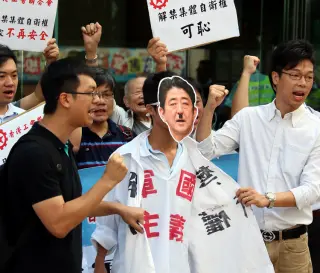Mexico's export markets in the United States and Canada will be endangered by the newly achieved controversial Trans-Pacific Partnership (TPP) trade deal, a Mexican economic official said Monday.
The agreement threatens to take a bite out of Mexico's trade with its two main commercial partners, the United States and Canada, said Julio Rodriguez, vice president of foreign trade and international affairs at the National Chamber of Transformation Industries (Canacintra), in an interview with Mexico's MVS news radio station.
Having signed with the two countries in 1994 to become a member of the North American Free Trade Agreement (NAFTA), Mexico had little choice but to continue to build on that partnership via the TPP, Rodriguez said. [ "We were used to being its (the United States') only dance partner," said Rodriguez, noting that the TPP changes the rules of the game by inviting East Asian countries to compete with Mexico to supply the North American market.
"We have to prepare ourselves for a new party where Mexico is no longer the United States' only suitor," he said.
Currently, as much as 82 percent of Mexico's exports go to the United States and Canada, Rodriguez said. "That is our market and that is what is at stake."
The TPP, largely led by the United States and Japan, was signed on Oct. 5 in the U.S. city Atlanta by Canada, Mexico, Chile, Peru, Australia, New Zealand, Singapore, Malaysia, Vietnam and Brunei, as well as its two main sponsors.
The wide-ranging free-trade agreement is expected to go into effect in two years between the 12 Pacific Rim nations.
Mexico's textile, sugar and auto parts industries, just to name a few, are set to compete against Vietnam, Australia and Japan, respectively, Rodriguez said.
The U.S. market has been the biggest for Mexico's auto parts export, but "Japan is looking to get a bigger piece of that pie," Rodriguez said.
Vietnam and Malaysia are also going to be selling more to the United States, he said. "We need to focus not on exporting more, but on not losing what we have already gained."
Rodriguez said industrial sectors should begin preparing for the increased competition by becoming familiar with the contents of the TPP, which have yet to be made public.
The contents will only be released to their respective legislatures before lawmakers vote to approve or reject the treaty, which cannot be amended. Enditem
 简体中文
简体中文

